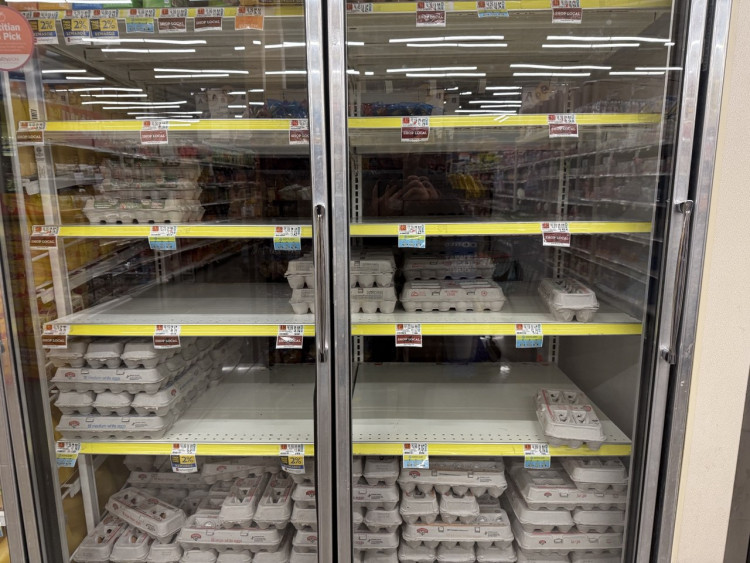The Trump administration will allocate up to $1 billion to combat the ongoing bird flu outbreak, aiming to stabilize egg prices that have reached record highs, Agriculture Secretary Brooke Rollins announced Wednesday. The plan includes increased biosecurity measures for farms, financial compensation for affected poultry producers, and expanded egg imports.
The outbreak of H5N1 avian flu, which began in 2022, has led to the deaths of 166 million chickens and has driven egg prices to an average of $4.95 per dozen-nearly double the cost from a year ago, according to the Bureau of Labor Statistics. Prices have risen even higher in cities like Chicago, New York, and San Francisco, where a dozen eggs now cost between $8 and $10.
"American farmers need relief, and American consumers need affordable food," Rollins wrote in a Wall Street Journal op-ed. "To every family struggling to buy eggs: We hear you, we're fighting for you and help is on the way."
The USDA's plan dedicates $500 million to biosecurity audits and farm protections, $400 million to increase payment rates for farmers who must cull infected flocks, and $100 million for research into vaccines and treatments. The agency is also exploring regulatory changes to ease burdens on egg producers, including backyard poultry keepers, and intends to increase imports while reducing exports.
Some of the funding will come from budget cuts imposed by Elon Musk's Department of Government Efficiency, Rollins confirmed. The agency is prioritizing solutions that reduce dependence on culling while maintaining trade viability for American poultry.
In an effort to boost domestic supply, the administration is working with international partners to import eggs. Turkey is expected to export 15,000 tons-or approximately 420 million eggs-to the U.S. through July, six times its shipments from the previous year. Other potential suppliers include Canada, the Netherlands, the U.K., and China, though officials have not confirmed additional trade agreements.
The plan marks a departure from the Biden administration's approach. Biden's USDA spent $1.5 billion combating bird flu, focusing largely on containment through mass culling. During his tenure, egg prices climbed from $1.60 per dozen in February 2021 to $4.10 in December 2024. Biden's administration also allocated $600 million toward monitoring H5N1's potential spread to humans and researching treatment options.
While Trump administration officials have criticized Biden's policies for failing to prevent soaring egg prices, USDA Chief Veterinary Officer Rosemary Sifford said Wednesday that "no anticipated changes to our current stamping-out policy" would be made. The USDA will continue eliminating infected flocks, but the additional funding aims to limit economic disruptions and create alternatives to mass culling.
United Egg Producers, representing 90% of U.S. egg production, praised the administration's approach. "President Trump and USDA Secretary Brooke Rollins have demonstrated their commitment to working alongside America's egg farmers in addressing the devastation of HPAI [highly pathogenic avian influenza] on the U.S. egg industry," said the group's president, Chad Gregory, in a statement.
Industry experts remain divided on vaccine use. Some argue that deploying vaccines would prevent further outbreaks, but others warn that it could disrupt trade, as some countries refuse poultry from nations that vaccinate against H5N1. Gregory Gray, a professor at the University of Texas Medical Branch, emphasized the urgency of vaccination, stating, "It sure seems to me that we're going to have to start using vaccines if we want to start putting this fire out."
Despite the $1 billion investment, the USDA projects egg prices will continue to climb, potentially increasing another 41% this year. Rollins, however, expressed confidence that the administration's approach would ultimately bring prices down. "The bottom line for consumers...is that we will fix it," she said at a press conference. "We've got our work cut out for us."






